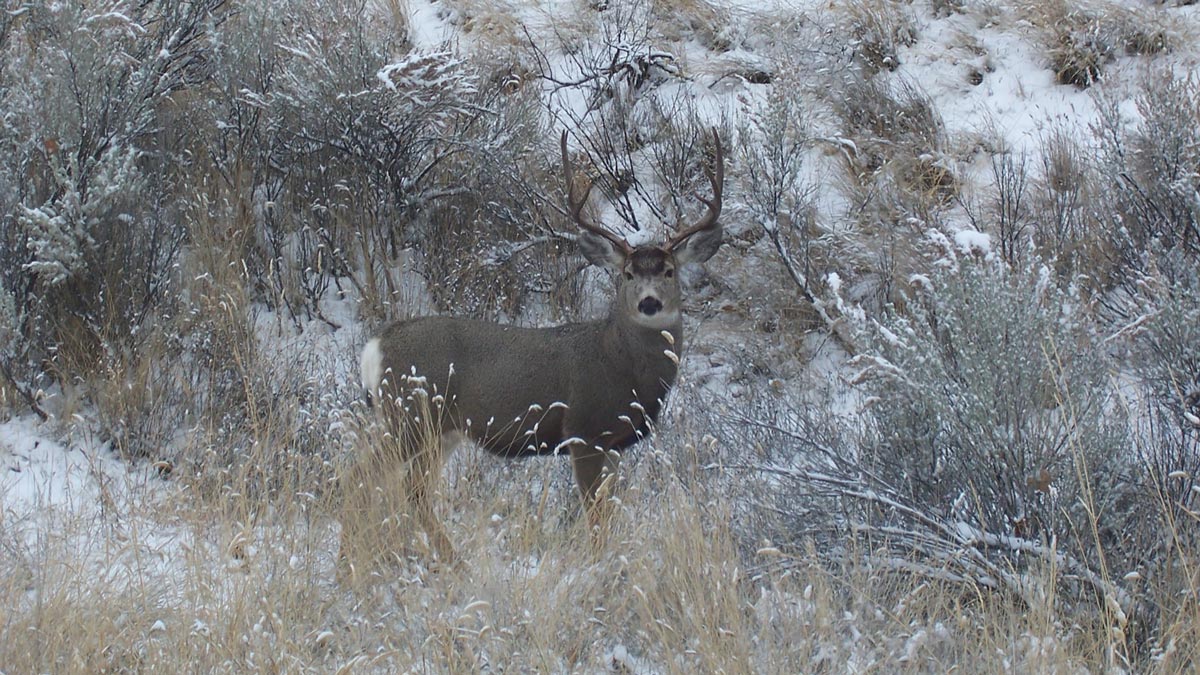Below is a news release from the Idaho Department of Fish and Game.
Two mule deer bucks harvested during October in the Slate Creek drainage near Lucile in Idaho County tested positive for chronic wasting disease, according to Idaho Fish and Game. Under Fish and Game’s CWD strategic plan, both hunters have been notified that their bucks tested positive.
Although CWD has been known to exist in the Western United States for over 40 years, this is the first time animals in Idaho have tested positive for the disease, which is fatal to deer, elk, moose and caribou. The Idaho Fish and Game Commission has been notified, as well as the Idaho Department of Agriculture, the Idaho Department of Health and Welfare and the U.S. Department of Agriculture.
Samples from the diseased mule deer were tested at the Colorado State University Veterinary Diagnostic Lab and are being verified by the National Veterinary Services Laboratories in Ames, Iowa.
Anyone hunting in Unit 14 is encouraged to have any harvested deer or elk tested. To sample for CWD, lymph node tissue from fresh or frozen harvested heads are extracted. Meat or muscle tissue cannot be used to test for CWD.
Fish and Game will continue to supply more information as it becomes available. Visit idfg.idaho.gov/cwd for more information.
Facts about CWD
What is CWD?
It is a contagious and always-fatal neurological disease that affects deer, elk, moose and reindeer. Fish and Game has been testing animals for CWD since 1997.
How can hunters have harvested animals tested?
Fish and Game staff will extract the lymph nodes from any harvested deer, elk or moose at any regional office. There is no cost to the hunter. To sample for CWD, hunters need to bring the fresh or frozen head to any Fish and Game regional office to have a lymph node extracted. Meat or muscle tissue cannot be used to test for CWD.
Turnaround time for Fish and Game’s CWD samples is about 4-6 weeks, and hunters can check Fish and Game’s website for results.
What are symptoms of CWD?
Symptoms in deer, elk, moose and caribou include excessive salivation, drooping head/ears, tremors, extremely low body weight, and unusual behavior, such as showing no fear of humans and lack of coordination. But CWD cannot be diagnosed strictly by symptoms because other diseases, or conditions, can also cause similar symptoms in an animal. Also, animals can be infected for months or years before showing symptoms.
What if someone sees an animal that appears to have CWD?
Fish and Game welcomes reports by hunters and citizens. A person should accurately document the location of the animal (GPS coordinates if possible) and report the species and gender, if known. Take pictures, if possible, and immediately contact the nearest Fish and Game regional office. Do not attempt to touch, disturb, kill or remove the animal.
(Photo credit: Idaho Department of Fish and Game)
